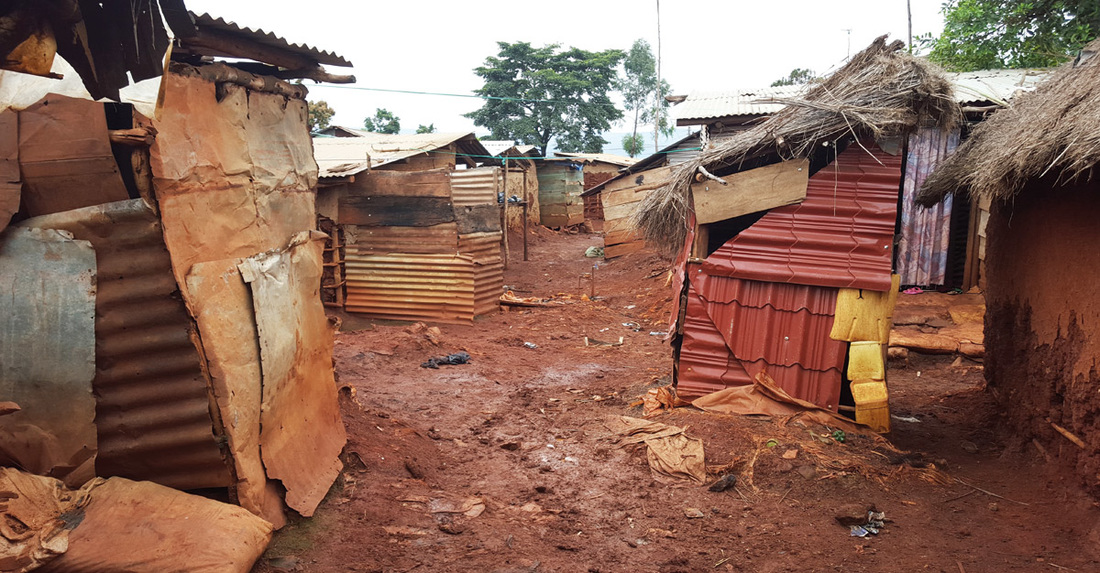|
Over the last three years, through the work we have supported in Soweto slum (within the Masese II area of Jinja), we have seen the lives of vulnerable children completely transformed.
This was our first pilot project in Uganda and, building on its success, we are starting out on an exciting journey of replicating this work in a series of nearby slum communities. Sadly the needs in these places are just as great as Soweto’s were three years ago. They are called Loco, Masese I and Masese III. Loco Loco is a small slum community, formed of basic rows of barracks that were owned by the railway corporation for their workers. Whilst the land is still owned by this company, the demise of the railway has meant that the accommodation is now rented to the poorest families at the cheapest rate in town. The high rate of HIV has resulted in many widows, child-headed and Grandparent-headed households. General health, hygiene and sanitation within the community is poor and there is an additional malaria problem due to the slum’s proximity to a large lake. There is a serious alcoholism problem here, leaving children especially vulnerable to abuse and neglect. Rampant theft and frequent instances of domestic violence also create a volatile environment. Child neglect is rife, with children regularly abandoned and left to fend for themselves. The nearby nursery school and primary school are both run down and expensive to attend, stopping the most vulnerable children from enrolling. Masese I Masese I is a large, densely populated lakeside slum community, formed mostly of internally displaced people from Northern Uganda. It is ten times the size of Soweto with a population of around 500,000. 70% of the community have no permanent jobs, and with casual labour paying an average of 1500 shillings a day (approx 30p), rent is too expensive. Consequently many children have to work finding firewood to pay for rent and food instead of going to school. For those that do want to pursue education, many can’t afford the school costs or nursery fees. The community is mainly made up of widows, single mothers, child mothers and child headed households. Many children are abandoned when single mothers try to solve their problems by marrying, only to find that their children are not welcome in the new household. Many are orphaned through HIV and malaria. Masese III Masese III is a slum community for low cost renters with an estimated population of around 5,000. The community consists of many Karamojong people, who are a nomadic group from Northern Uganda. The Karamojong traditionally let their children wander unattended, resulting in many left alone and vulnerable all day whilst their parents are working. Child marriage is a serious issue in this area due to traditional practices, which can be brutal. Child headed households (often as a result of HIV) and child protection issues are rife and alcoholism is a recurring problem. Over the past few years the community have become dependent on food handouts from a neighbouring organisation who is about to move on, so they desperately need to develop sustainable incomes and food sources. What we have done so far Following our pilot, the first, crucial step is to have established a Child Protection Team in each area, who are working to empower the local residents to provide a safe environment for their children. This team are building relationships in each place, identifying the problems specific to each area and beginning to address them through workshops and training sessions. The workshops are dealing with many issues including child development, parenting techniques, child rights, reproductive health and alcohol abuse. They will also offer individual support to vulnerable families. What we’re going to do over the next few years
Find out more about our expansion in Uganda Donate to the new projects Support usComments are closed.
|
RECEIVE OUR EMAILSBlog Categories
All
Archives
July 2024
|
|
JOIN US ON SOCIAL MEDIA
|
Annual Report | Contact Us | Jobs | Media Centre | Resources | Shop
Accessibility & Policies: Accessibility | Equity, Diversity & Inclusion Policy | Complaints| Privacy Policy | Safeguarding
Accessibility & Policies: Accessibility | Equity, Diversity & Inclusion Policy | Complaints| Privacy Policy | Safeguarding
Children on the Edge, 5 The Victoria, 25 St Pancras, Chichester, West Sussex, PO19 7LT, UK | 01243 538530 | [email protected]



 Give monthly
Give monthly Fundraise for us
Fundraise for us RSS Feed
RSS Feed
